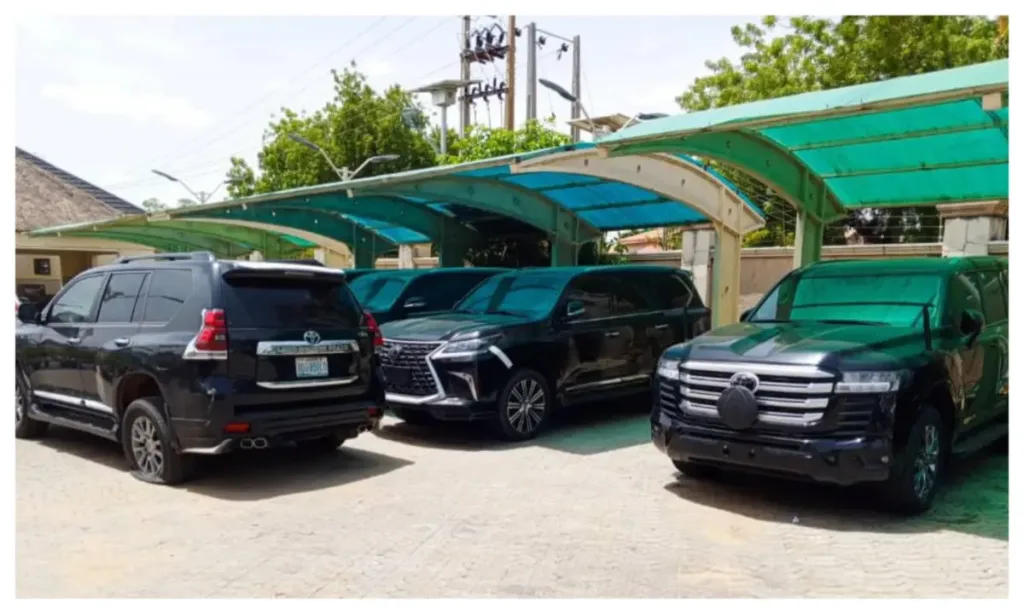A Nigerian appellate court has confirmed the legality of seizing 40 government-owned vehicles from a former state governor’s residence, marking a significant legal defeat for the ex-official. The Sokoto Division of Nigeria’s Court of Appeal dismissed former Zamfara State Governor Bello Matawalle’s challenge to the recovery of the vehicles on August 8, 2025, ruling his evidence insufficient to prove ownership. The decision affirms ongoing efforts by authorities to reclaim public assets from outgoing officials, a practice scrutinized nationwide amid concerns about accountability.
The judicial panel, chaired by Justice A.M. Talba, upheld a December 2023 Federal High Court decision that authorized the vehicles’ retrieval. Court records show the dispute began when Zamfara’s incoming administration, led by Governor Dauda Lawal, discovered Matawalle had retained multiple official vehicles after leaving office in May 2023. Despite repeated requests for their return, the former governor reportedly refused, prompting police to execute a court-approved operation at his residence in June 2023. Over 40 vehicles were recovered, including cars assigned to government offices.
Matawalle filed suit shortly after the seizure, alleging violations of his constitutional property rights and demanding the vehicles’ return. His case, initially filed in Gusau, was later transferred to Sokoto’s Federal High Court, where judges rejected his claims. The appellate court concurred, noting that state authorities had followed lawful procedures to reclaim public property and that Matawalle produced no documentation — such as purchase receipts or ownership records — to counter evidence that the vehicles belonged to Zamfara’s government.
Justice Talba emphasized that the recovery operation did not breach fundamental rights protections, as Nigerian law permits investigations into alleged misuse of state resources. The ruling also clarified that holding public office does not immunize individuals from scrutiny, leaving open the possibility of criminal proceedings. While Matawalle’s legal team has not publicly commented on potential appeals, anti-corruption advocates hailed the judgment as reinforcing accountability norms.
This case highlights broader debates across Nigeria about the alleged retention of government assets by former officials. Zamfara, a northwestern state grappling with security challenges and economic strain, has framed the recovery effort as part of fiscal responsibility reforms. Analysts suggest the court’s decisive stance may set a precedent for similar disputes, particularly as public frustration grows over perceived elite impunity. With multiple states recently initiating asset recovery drives, the ruling underscores judicial support for transparency measures — provided due process is followed.
